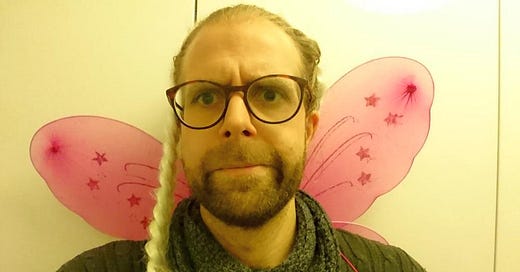
Happy Friday!
And welcome to the last newsletter before Christmas. This week I’ve trawled through my whole year and hoovered up 52 nuggets of gold that I thought were worth sharing from the past 30,585,526-odd moments.
Compiling this list has taken me hours and hours and hours and hours - far, far longer than I ever imagined it would. So if you find anything interesting here, I would particularly love to hear from you this week!
Without any further ado, here’s the list. Thanks for reading! 😘
52 Things I Learned In 2019
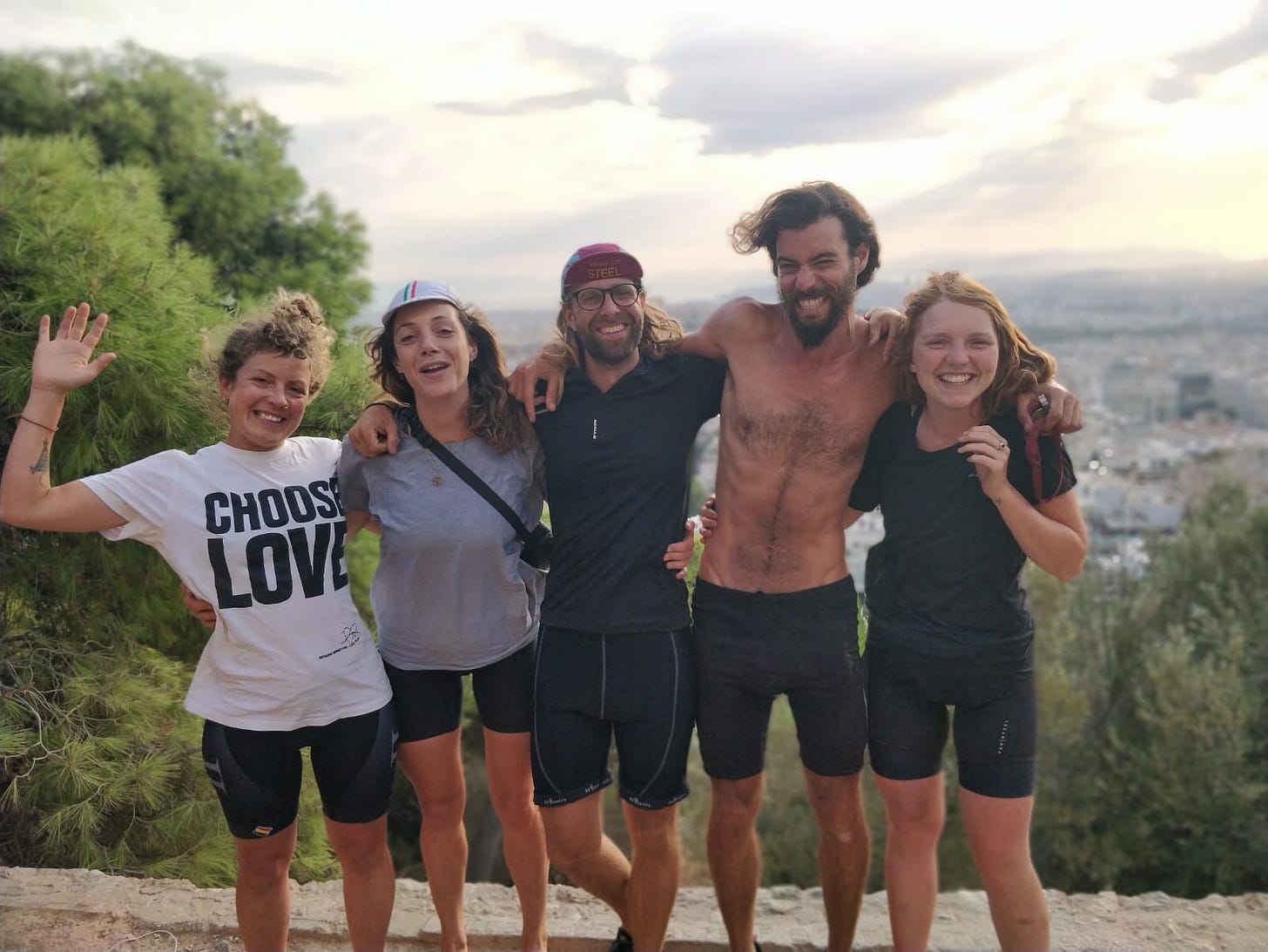
Above: The Thighs of Steel Core Team arrive in Athens after 9 weeks and over 6,000km of cycling. This photo sums up the best of what I learned in 2019.
Your gut behaves like a second brain of over 100 million nerve cells called the enteric nervous system, which can communicate with your head-brain through the vagus nerve, and also by releasing bacterial metabolites into the bloodstream. We are what we eat, in other words. Read a digest of the science on my blog.
Fingerspitzengefühl is a splendid German word, literally meaning ‘finger tip feeling’ and best translated as ‘intuitive flair’ or ‘instinct’. I have no memory of where I picked this up.
This year, The Guardian updated its style guide to recommend journalists use terms that more accurately reflect the science of climate change – sorry – climate breakdown. Editor-in-chief Katharine Viner says: ‘The phrase “climate change”, for example, sounds rather passive and gentle when what scientists are talking about is a catastrophe for humanity.’ Words are important. Read about other word choices in The Guardian.
Fires in equatorial Asia contribute 8 percent of global carbon emissions and 23 percent of methane emissions despite only accounting for 0.6 percent of the world’s burned area. That’s down to the burning of carbon-rich peatlands in countries like Indonesia. I learned a lot more while writing this article for Forests News.
Rejection is joyous. Read more on my blog - or watch this TEDx talk by Jia Jiang.
‘Activity gives you more energy, not less’, one of five key ideas from the book Digital Minimalism by Cal Newport. Read the other four on my (new) blog.
Millennials are the burnout generation. There is so much in this article, but here’s one idea that struck home: ‘[Burnout] takes things that should be enjoyable and flattens them into a list of tasks, intermingled with other obligations that should either be easily or dutifully completed.’ Read the full article on Buzzfeed.
In Utah there’s a 6,000 tonne quaking aspen that is between 80,000 and 1,000,000 years old. I’ve learned how to age trees (without chopping the in half) twice this year and forgotten both times. Every species grows at a slightly different rate, and at different rates at different ages and in different environments, but a half decent rule of thumb is that the girth of the tree will increase by about an inch every year. I found this PDF from Wokingham District Veteran Tree Association useful.
Over the past decade, about 550,000 more Britons left London than moved to the city. Read why people are leaving London on BBC News. Read why I think small is sociable on my blog.
A psychedelic experience has the potential to be a Black Swan event for the individual. Read through this thought on my blog. Better yet, read Michael Pollan’s book How to Change Your Mind and/or watch this video of him in conversation with Robin Carhart-Harris, head of the Centre for Psychedelic Research at Imperial College London:
As well as the amelioration of symptoms of depression, specific anxiety (not generalised) and PMS, psychedelic microdosing has been linked with physical enhancements in strength, stamina and flexibility. The talk I gave at Love Trails Festival showed me that runners are really interested in the practical application of vanishingly small amounts of psychedelic substances. Read more in Advances in Psychedelic Medicine (Google Books).
Injuring your hamstring can take months and months to recover from. Bloody annoying when fifty percent of your stress-reduction strategy involves running.
There are five major varieties of bullshit jobs: flunkies, goons, duct tapers, box tickers and taskmasters. The antidote to bullshit jobs and the bullshitisation of our lives is to care. We won't be rewarded financially, but we will be rewarded in other ways, including with the intrinsic reward of being able to sleep at night. Read Bullshit Jobs: A Theory by David Graeber at your local library or online for free at The Anarchist Library.
People on a meat-heavy diet could shrink their food-related footprint by at least 33% by becoming vegetarian. Eat less beef, lamb and cheese. Substitute with pork, chicken, eggs and molluscs. Replace with beans, pulses, grains and soy. Read my digest of a New York Times deep dive on the subject.
Reading a book is ‘forced meditation’. Please, please watch Bookstores, a documentary paeon to reading. It includes a wonderful interview with ‘total baller’ Dr Ruth J Simmons at ~29:30: ‘If you enforce reading, you are likely to enforce time for reflection because it’s hard to read without reflecting … Busyness does not make our lives meaningful; it is the interior life that makes the greatest difference to us in the end.’
The average shower lasts seven minutes and uses 65 litres of water. That sounds like a lot, but most of the water we ‘drink’ is embedded in the food we eat: producing 1 kilo of beef for example consumes 15,000 litres of water while 1 kilo of wheat ‘drinks up’ 1,500 litres. Read my investigation into the environment demerits of showering on my blog.
It takes us about 50 hours of typing to write an episode of Foiled. Read more about our process on my blog.
There’s such a thing as the Celtic Media Awards! We go again next year…
On 29 July, volunteers in Ethiopia planted 350 million trees across 1,000 designated sites in 12 hours. Read more on Atlas Obscura.
This year, I learned how to play The Trellis by Nick Mulvey (who, incidentally, went to the same university as me - I remember watching his old band Portico Quartet in the student union). Get the TAB from Bantham Legend and play along with this video:
From a standing start, fully dressed at my desk, the minimum viable swim (out to beyond my depth, plus three head dunking dives and back) takes exactly 13 minutes. Read why you should always take the swim on my blog.
Climbing trees is good for you in ways that you can’t quite remember until you’re up there, looking down. ‘Trees deliver us from the banal, and reaching the top of one is like coming up for air and breaking the bubble of our timetabled lives.’ Read The Tree Climber’s Guide by Jack Cooke.
On flat ground, I take 64 paces to walk 100 metres. A useful thing to know if you’re trying to navigate in low visibility (or trying to find an obscure map feature as part of your Lowland Leader Award assessment). Learn more about pacing from Mountain Safety.
Fractal environments, such as those we experience in abundance when in the countryside or beside the sea, help regulate emotions and reduce stress in a similar way to music. Read The Nature Fix by Florence Williams for a full exploration on the myriad ways nature does us good - or read this Atlantic article on Why Fractals Are So Soothing.
Leave love letters. Read the secret story on my blog.
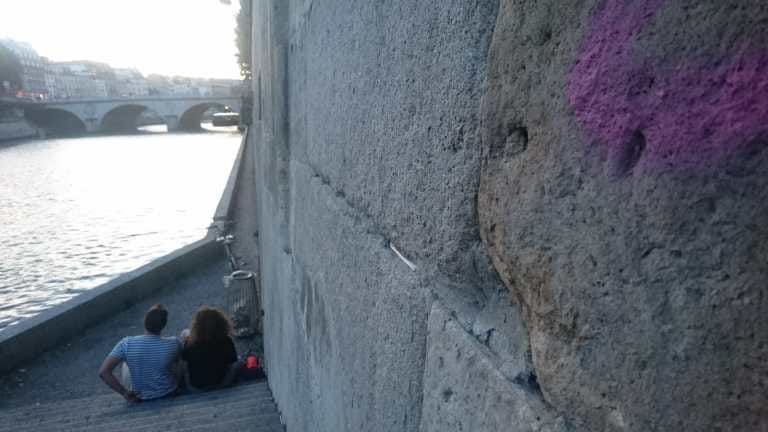
I really like Emmental. Also: always travel with a pat of butter. Tortilla chips slathered with butter makes for a surprisingly good cycling snack. Ignore the doubters.
Neapolitan street food is dangerous. Frittatine di pasta is a depth charge of carbohydrates, macaroni, béchamel and pork weighted with enough oil to power a medium-sized caravan. Digestible only when halved, quartered, and shared to soak up limoncello. Eat more on my blog.
Unlike those at liberty, asylum seekers imprisoned in detention centres are allowed to work – for the princely wage of £1 per hour. Read Michael Darko’s story of indefinite detention on my blog.
Refugees and asylum seekers dress well and wear cologne because it helps them integrate into society. ‘For me, to look good and to be clean could help me in front of society. People might accept me.’ Read Mahmud’s story on my blog.
The Croatian Adriatic coast is beautiful, but the Adriatic coast road will be too full of touring motorists in mid-summer for you to fully relax and enjoy the ride. As you can’t see in the photo below.
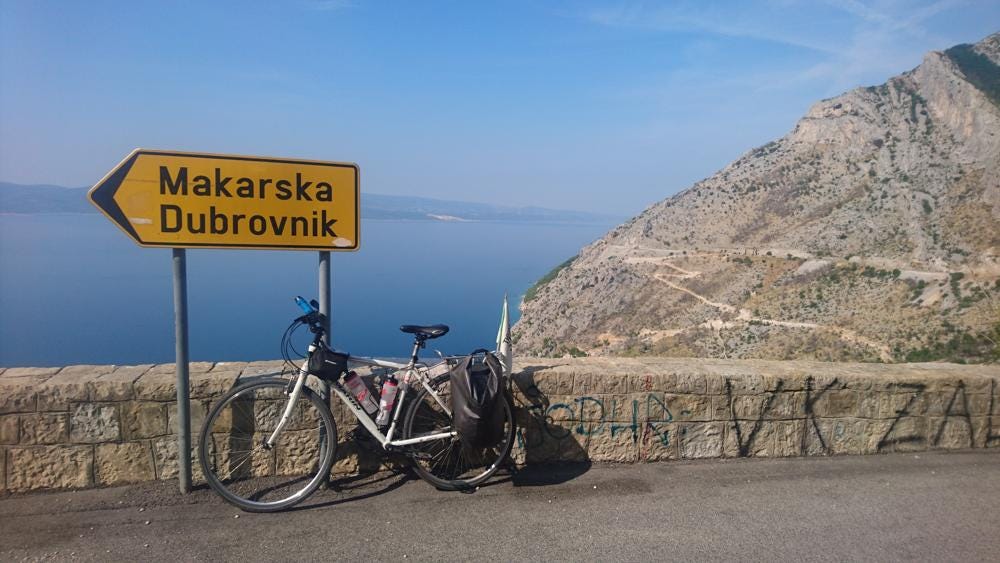
Albania may very well be the most hospitable country in the world for touring cyclists. Thank you, Albania. Read the story of Thighs of Steel in Albania on my blog.
Cycling around Ikaría, a Greek island home to Europe’s highest concentration of centenarians, is really fucking hard. Read the story on my blog.
Diving into the sea head first can really mess you up. From a height of ten metres, you break the surface at 36.6mph and that exerts crazy force on your body as the water slows you by more than 50 percent in a fraction of a second. I guess that’s why diving is an Olympic sport. I got a dislocated shoulder, but maybe I was lucky not to get concussed. Read more about the risks of diving on SportsRec.com. Next time, I’ll be following this sage advice from Tourism On The Edge.
Greek can be disturbingly similar to Spanish in the most unhelpful ways. For example: aquí in Spanish means here; εκεί in Greek means there.
The maximum capacity of Samos refugee camp is 648. The current refugee population in the town is nearing 8,000. Read my Are You Syrious? Special about Samos and stay in touch with the data by subscribing to Aegean Boat Report.
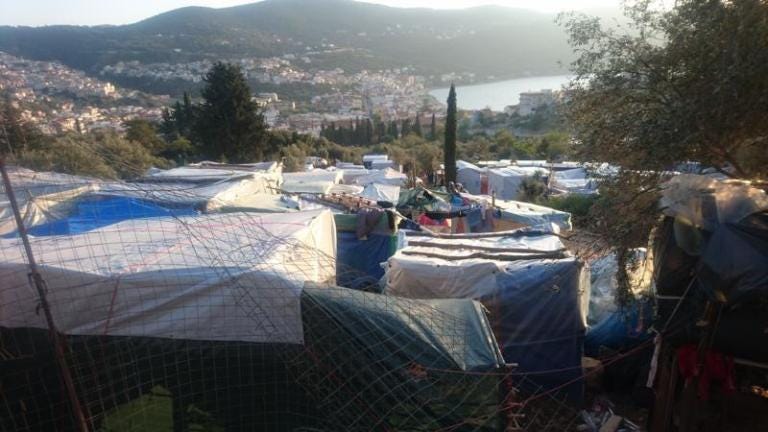
Some female refugees who have been raped refuse abortions because they believe pregnancy will expedite their asylum application. Read how women’s bodies are being abused by the asylum system on my blog.
There is one doctor for (at the time) 6,000 refugees on Samos. Read more snippets from Samos on my blog.
17,205 people were granted asylum in the UK in 2018. Over the same period, Germany granted asylum to 139,555 people. In Turkey, there are in excess of 3,600,000 Syrian refugees, living with the limited legal rights granted under ‘temporary protection’, in the shadow of a war zone. Read my full report from İzmir on my blog.
You can know a culture through its language. While in the Netherlands I learned two Dutch word-philosophies: gezellig and niksen. Gezellig is an earthier version of the Danish hygge, while niksen is doing-nothingness. Both vital. You can take two minutes of niksen using this timer - it took me two attempts to complete because I am, at heart, a millennial.
The Netherlands has a border with France. Read about my trip to Urk with The Tim Traveller. Or, better still, watch this:
E.M. Forster is an excellent novelist. Read my other Summer / Autumn recommendations on my blog. And ‘beware of muddle’.
The best things in life are free, but some other stuff is free as well if you ask nicely. Read more about getting shit for free on my blog or check out my second look review of the free (to me at least) Punkt MP02 mobile phone.
Since the Tories first came to power in 2010, admissions to A&E of homeless people has tripled. Read the horrifying absract in the BMJ. But perhaps this was the election that brought us closer together. Read why on my blog.
TOTALLY UNRELATED TO THE RESULTS OF THE GENERAL ELECTION: it is theoretically possible to acquire French citizenship (and regain an EU passport) in only two years if you study for a masters in the country and have no ‘assimilation defects’. Read this petite histoire on Pret A Voyager before embarking, however.
Divock Origi.
I have already spent more time with friends and family in 2019 than I did last year. Yep: I keep a spreadsheet. I’ve spoken at least twice with a total of 47 people this year, 14 of whom I’ve had the pleasure of speaking to at least 20 times.
According to my rough estimates, I have visited 59,323 web pages so far this year - that’s over 1,100 unique pages every week and a 14 percent increase on 2018. Can I think of more than a dozen web pages that have made a positive difference to my life in 2019? No, I can’t. 8 percent of unique page views were on the BBC Sport website, for example. I frequently fantasise about a life without the Internet. But then I wouldn’t be able to write you these love letters, would I?
Through Spring, Summer and Autumn 2019, I lost my five-year daily habit of diary writing. Now I’m trying to trust the process again.
By and large, I stuck to my No News Is Good News reading habit. I accessed almost double the number of BBC News stories as I did in 2017 - but nearly half of them were actually sports stories like ‘Enes Kanter: Turkey seeks arrest of New York Knicks star’. WTF. I have no interest in baseball (is that even baseball?) If you exclude sports stories, then I only accessed 56 ‘news’ stories in 2019. Of those, my primary interests were Brexit, the General Election and the environment.
I enjoy ice skating exactly as much I suspected. I’ll try not to leave it another thirty years before my next outing. (Artwork below by my niece, aged 5.)

After keeping a nightly journal of ‘5 Great Things’ since 5 February, I have learned that the greatest things in my life are quite often miniscule, and almost always related to other people. The strongest element of keeping such a journal is reflecting on past entries so here’s an incredibly mundane sample of three, picked from random days in the two notebooks I’ve filled this year:
‘Loads of walking >18km’
‘Being woken up by Django licking my face’
‘Sauna’
I should say that Django is a dog. I was inspired to start the journal by this article on For The Interested.Leather trousers are surprisingly comfortable.
That’s it!
Well done for getting this far. If you’ve enjoyed reading this newsletter over the past year, then I’d be thrilled if you share the link with your friends or on your social media. Thank you!
Books Make Books: My Reading Newsletter
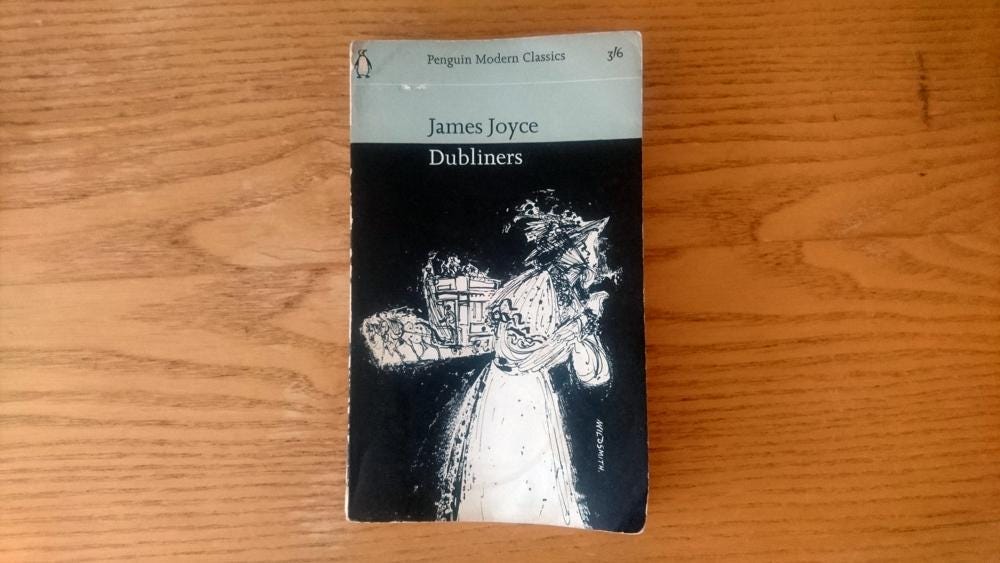
Earlier this week, I set up a shiny new Substack newsletter as a repository for my reading. It’s called Books Make Books.
Cormac McCarthy once told an interviewer that ‘books are made of books’ and, as a writer, reading is critical to my work. Professionally, I’d be unbelievably stupid not to take half hour to note a few things that I’ve learned from the authors I spend time with.
From this week forward, I’ll be publishing these notes on the Internet. Like this: Dubliners by James Joyce, or like this: Atomic Habits by James Clear.
I’ll probably drop the odd notification into this newsletter, but you can also subscribe directly to Books Make Books and get ~30-40 posts/books a year straight into your inbox.
Your neck of the woods?
I’m going to be bouncing around between London and Oxfordshire over the next week, jugging family festivities with volunteering for Crisis at Christmas.
My first Crisis shift is on Monday. I usually do two shifts at the end of the holiday, when everyone is clean and refreshed - but apprehensive about leaving the warmth of the converted school for the freezing loneliness of the streets. This year, I’m looking forward to greeting the guests as they come in from the cold on day one.
I know I’ve written about Crisis umpteen times on this newsletter, but last Saturday evening I sung my heart out at the Crisis carol service at Southwark Cathedral. Between the carols and tidings of goodwill, we heard three heart-rending stories from Crisis members, before Jon Sparkes, the charity’s chief executive, took to the pulpit.
He did a very diplomatic job of welcoming the new Conservative government.
‘Homelessness is a policy choice,’ Jon said, before outlining the plans to end homelessness that the Scottish government already has in place, and that the Welsh government are currently piecing together, in close consultation with Crisis.
The government of England has no such plan, nor any plans for such a plan.
Responding to the Conservative manifesto before the election, Jon said: ‘It’s deeply disappointing to see the Conservative manifesto fall short of the mark when it comes to ending homelessness, in all its forms, once and for all.’
Crisis is instead working with local authorities to implement their own plans, helping them take control where national leadership is lacking. Newcastle, for example, has pledged to end homelessness within the next ten years.
This Christmas, about 4,500 homeless guests - or ‘fellow citizens’ as Jon called them - will join 12,000 volunteers at the ten Crisis centres around London.
12,000 volunteers! This is an incredible show of support for our marginalised fellow citizens, whose population has grown so vertiginously over the past ten years.
But what’s even more incredible is that we are all still living in a society beholden to the pernicious Vagrancy Act of 1824 that makes rough sleeping a criminal offence.
Crisis are currently running a campaign to scrap the act, but isn’t it incredible that they should have to campaign at all?
Yet here we are. In England, at least, we fall further and further every year from our goal of ending homelessness, in all its forms, once and for all. The United Kingdom is the sixth biggest economy on the planet. Shame.
Rather than leave you on such a downer, I want to say again that we are each of us tiny slivers of society. Yes, life would be so much easier if we had the backing of the government and that enormous economy, but we can each participate, with our time, money, anger, or simply with a kind word on the street.
Happy Christmas and much love,
dc:
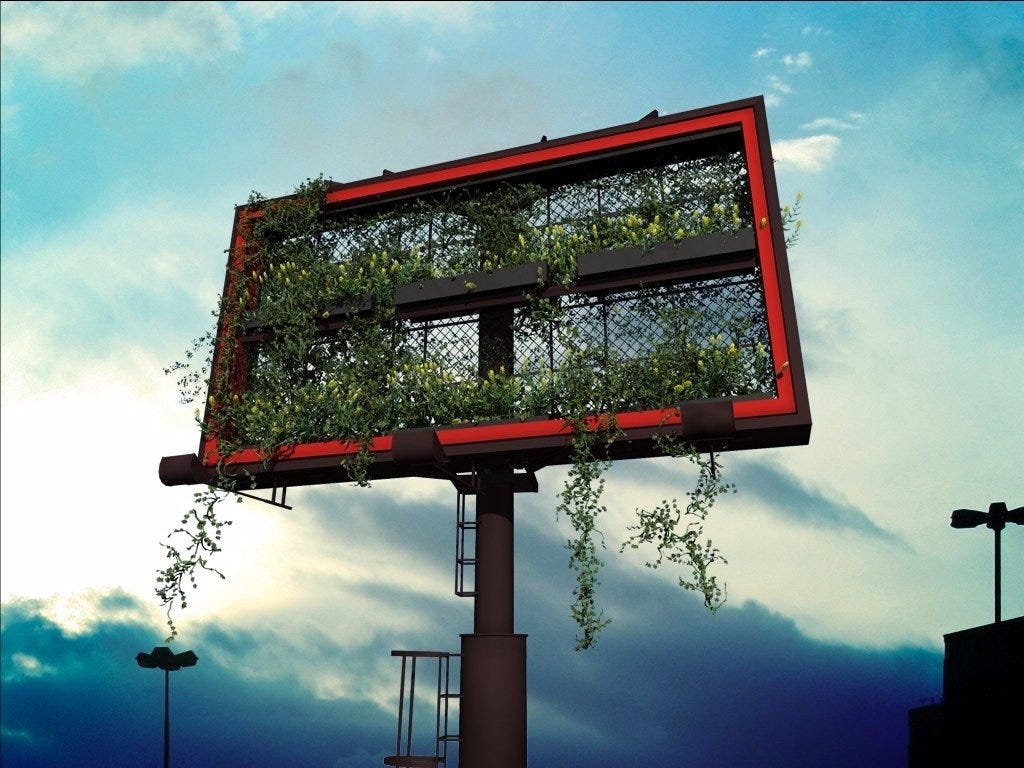
Image: Special Patrol Group
CREDITS
David Charles wrote this newsletter. He also publishes a reading newsletter called Books Make Books. David is co-writer of BBC Radio Wales sitcom Foiled, and writes for The Bike Project, Forests News, Global Landscape Forum, Elevate and Thighs of Steel. Reply to this email, or read more at davidcharles.info. Thank you for subscribing!

